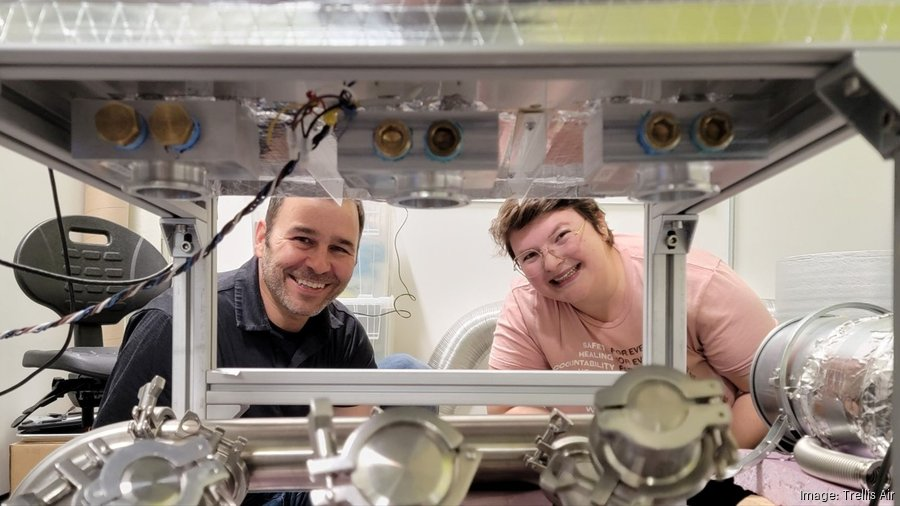Bill Gates’ AI fears have gained attention as he articulates concerns about the future of artificial intelligence technology. During a recent event promoting his memoir, “Source Code,” the Microsoft founder opened up about the rapid advancements in AI and the implications they hold for society. Gates acknowledges that while AI has the potential to revolutionize industries such as medicine and education, its swift development also raises legitimate technology concerns. He advocates for a balanced perspective that embraces curiosity and innovation while remaining vigilant about the challenges posed by such powerful technology. With his unique insights derived from years of experience in the tech world, Gates’ thoughts serve as a crucial reminder of the dual nature of advancement in AI technology.
The apprehensions expressed by Bill Gates regarding the emergence of AI highlight a growing discourse surrounding intelligent automation and its societal impacts. As a pivotal figure in the tech realm, Gates encourages an open dialogue about the responsibilities that come with innovation, particularly when it involves advanced computational systems. His reflections are rooted in a broader context of technological evolution, urging individuals to remain inquisitive while addressing potential drawbacks of artificial intelligence. The former CEO of Microsoft recognizes that this transformative technology can offer significant benefits, but also underscores the need for caution in navigating the uncharted territory it presents. Gates’ perspective serves as an essential guide for understanding the complex landscape of modern technology.
Bill Gates on Artificial Intelligence: A Balancing Act
In a recent discussion surrounding his memoir ‘Source Code’, Bill Gates shared his reflections on the rapid advancements in artificial intelligence (AI) and the palpable concerns that come with them. As someone who has been at the forefront of technology for decades, Gates acknowledged the transformative power of AI technology but emphasized the need for caution. He noted that although AI has the potential to revolutionize industries such as healthcare and education, it also raises ethical dilemmas and fears about technology’s unchecked influence in our daily lives.
Gates stated that the swift pace of AI development is indeed ‘a little bit scary.’ He pointed out that while tools like AI can enhance productivity and efficiency, they could also be misused. Echoing his concerns about technology’s impact on society, he urged a careful examination of AI’s implications for the future. This perspective contrasts with the early optimism surrounding personal computers, highlighting the intricate balance between innovation and caution in today’s tech-driven world.
Reflections from a Microsoft Founder: The Beauty of Math and Curiosity
Reflecting on his academic journey, Bill Gates conveyed a deep appreciation for mathematics and its inherent beauty during his time at Harvard. In his memoir, he recalls how he idolized pure mathematicians and was drawn to advanced calculus courses that challenged him academically. Gates describes moments of humility, realizing that even with his high IQ, there were peers who surpassed his talents. These experiences fueled his passion for curiosity and innovation—key themes he hopes to impart to readers of ‘Source Code’.
Curiosity has always been a cornerstone of Gates’ approach to technology and education. He believes allowing students to experiment and take risks can lead to groundbreaking discoveries, much like the innovation that birthed Microsoft. Gates’ journey from a curious student to a tech pioneer exemplifies how embracing one’s passions and exploring new realms of knowledge can lead to impactful change in the world.
The Rise of Microsoft: From Harvard Dropout to Tech Mogul
Bill Gates’ decision to drop out of Harvard to co-found Microsoft marked a pivotal moment not just for him, but for the technology industry as a whole. Fueled by a profound understanding of software development and a vision for personal computing, Gates, alongside his friend Paul Allen, pursued the idea of creating a new software paradigm. They were among the first to recognize the potential of microcomputers, leading to the development of groundbreaking products like Windows.
Gates reflects on the excitement and urgency of that era, recalling the moment he and Allen saw the Altair 8800 in a magazine, a defining trigger for their career paths. The leap from academia to entrepreneurship was filled with risks, but Gates’ innate curiosity drove him forward. His journey illustrates how passion combined with technological insight can transform industries, inspiring countless entrepreneurs in the tech landscape.
Concerns Over Technology’s Influence on Youth
During the event at Harvard, Bill Gates engaged with students about a pressing concern: the pervasive impact of technology on young people today. With social media and smartphones becoming integral parts of life, Gates emphasized the necessity for balance and moderation. He candidly shared his own experiences as a parent, noting his decision to delay his daughter’s access to a smartphone until she turned 15. Gates highlighted that even he, the architect of transformative technologies, recognized the importance of maintaining boundaries in an era where digital distractions abound.
This discussion resonates deeply, as many educators and parents echo Gates’ insights on technology use. The challenge lies in fostering a healthy relationship with devices while still allowing space for involvement in digital innovation. Gates advocated for parents to be proactive rather than passive, thereby empowering future generations to harness technology responsibly without succumbing to its overreach.
Navigating Technology Concerns: Gates’ Vision for the Future
Amidst his discussions of technology’s advancements, Bill Gates addressed the broader implications of these developments for society. He underscored the significance of informing public discourse and regulatory frameworks surrounding emerging technologies, particularly AI. Gates encouraged a collaborative approach between technologists and policymakers to ensure that innovation serves humanity’s best interests. His vision incorporates ethical considerations and societal impacts as integral elements of technological progression.
With a focus on harnessing ‘free intelligence’ from AI to solve real-world issues, Gates remains hopeful about the future, despite acknowledging the potential downsides. His forward-thinking perspective invites a dialogue on how to leverage technology for the greater good while addressing necessary safeguards, reflecting a balanced view on the progress of the digital era.
Learning from the Past: Bill Gates’ Legacy in Tech
As Microsoft co-founder and a pivotal figure in tech history, Bill Gates’ legacy is interwoven with the evolution of software and personal computing. His memoir, ‘Source Code’, not only chronicles his journey but serves as an encouragement for future innovators. By drawing from his experiences and the early days of computer development, Gates encourages readers to value perseverance, creativity, and a willingness to learn from failure.
Gates’ insights reveal a leader who transcends his initial role as a tech entrepreneur to become a global philanthropist. His efforts in health, education, and agricultural development stem from an understanding that technology can and should be a tool for improving lives. This holistic view of technology, which combines deep-rooted curiosity and innovation, is a vital lesson for future generations embarking on their own paths in the field.
The Evolution of AI: Opportunities and Challenges
Bill Gates acknowledged the dual nature of artificial intelligence during his recent discussions, identifying it as both an opportunity for great strides and a source of apprehension. He recognized that AI technology holds transformative potential across various sectors, from enhancing medical practices to global education initiatives. However, Gates urged caution, emphasizing the need to address ethical implications and the speed at which AI is evolving.
This acknowledgment of AI’s complexities underscores the responsibility held by today’s innovators. Gates advocates for proactive measures to ensure that as technology advances, society remains equipped to handle its consequences. His insights encourage a discourse on the balance between harnessing AI’s possibilities and preemptively strategizing against potential risks, thus framing the future of technology as both exciting and cautious.
Bill Gates: Inspiring Future Innovators and Leaders
Bill Gates’ journey from a curious young programmer to a tech icon serves as an inspiration for future innovators and leaders in technology. His memoir, ‘Source Code’, not only provides personal anecdotes but also valuable lessons on curiosity, risk-taking, and the relentless pursuit of knowledge. Gates encourages young individuals to embrace their ambitions and explore uncharted territories, reflecting on how stepping outside one’s comfort zone can lead to monumental advancements.
Moreover, Gates underscores the significance of values such as philanthropy, responsibility, and ethical considerations in technology. He calls upon the next generation of innovators to prioritize the welfare of society in their endeavors, fostering a culture of responsibility among tech pioneers. By promoting this mindset, Gates is motivating future leaders not only to drive progress but to do so with a conscious commitment to making the world a better place.
Conclusion: The Future of Technology and Society
As we stand on the brink of technological advancements, Bill Gates’ perspectives provide invaluable guidance. He recognizes that technology holds the power to reshape our world but insists on the importance of ethical considerations and societal impacts. In his discussions, Gates champions the values of curiosity and innovation while also urging caution regarding the rapid developments in AI and other technologies.
With his memoir ‘Source Code’, Gates hopes to inspire a new generation to engage with technology actively and responsibly. By sharing his experiences and insights, he emphasizes that the path to a better future involves not only embracing innovation but also being vigilant about the implications of that progress. As we move forward, lessons from Gates’ journey will undoubtedly play a crucial role in shaping the future of technology and its intersection with society.
Frequently Asked Questions
What are Bill Gates’ fears regarding AI technology in his recent memoir?
In his memoir ‘Source Code,’ Bill Gates expresses concerns about the rapid advancement of AI technology, referring to it as ‘a little bit scary.’ He acknowledges the potential benefits of AI in improving sectors like medicine and education but emphasizes the need for careful consideration of its implications.
How does Bill Gates view the impact of AI technology on society?
Bill Gates sees AI technology as a powerful tool that can address significant societal challenges, such as shortages in healthcare and education. However, he is also wary of the associated risks, highlighting the importance of responsible development and use of AI to prevent negative consequences.
What lessons from Bill Gates’ childhood relate to his views on AI technology?
Bill Gates attributes his innovative mindset and curiosity to his upbringing, which plays a role in his perspective on AI technology. He encourages embracing new ideas and experimentation, which connects to the need for thoughtful exploration of AI’s capabilities and limitations.
In what ways has Bill Gates’ background as a Microsoft founder influenced his concerns about AI technology?
As the co-founder of Microsoft, Bill Gates has firsthand experience with the transformative power of technology. His history with software development informs his understanding of the potential of AI technology while also shaping his apprehensions about its unregulated use and rapid evolution.
What specific technological concerns does Bill Gates mention regarding the future of AI?
Bill Gates highlights concerns about the pace of AI technology’s development and its potential societal implications. He draws attention to the need for caution and responsibility, advocating for frameworks to ensure that AI contributes positively to society rather than creating unforeseen challenges.
How does Bill Gates balance nostalgia with his fears about AI technology?
During discussions on the evolution of technology, Bill Gates reflects on a nostalgic era of techno-optimism while expressing caution regarding AI technology. He contrasts the initial positive reception of innovations like Microsoft Word with modern anxieties surrounding AI’s rapid advancements.
What role does curiosity play in Bill Gates’ perspective on AI technology?
Curiosity, as emphasized in his memoir, is central to Bill Gates’ outlook on technology, including AI. He advocates for a culture of exploration and innovation, suggesting that a curious approach can help address the complexities and fears associated with AI technology.
| Aspect | Details |
|---|---|
| Event | Bill Gates visited Harvard to discuss his memoir “Source Code” and share insights from his life. |
| Background | Gates reflected on his childhood, early challenges in school, and his time at Harvard. |
| Main Themes of the Memoir | Curiosity, risk-taking, and the influence of his parenting on his success. |
| Concerns on Technology | Gates expressed nostalgia for earlier technology optimism compared to today’s excessive use of tech by youth. |
| AI Perspectives | Gates stated AI is beneficial yet ‘a little bit scary’ due to its rapid advancement. |
| Career Development | Dropped out of college to start Microsoft, which revolutionized computing with software applications. |
Summary
Bill Gates AI fears highlight the tension between innovation and caution in the technology landscape. During a recent event at Harvard, Gates acknowledged the rapid advancement of artificial intelligence and described it as “a little bit scary.” He emphasized the potential of AI to ease shortages in critical areas like medicine and education, while also reflecting on the challenges and ethical considerations arising from its adoption. His views resonate within the broader discourse on technology’s role in society, emphasizing the need to balance technological progress with responsible use.



